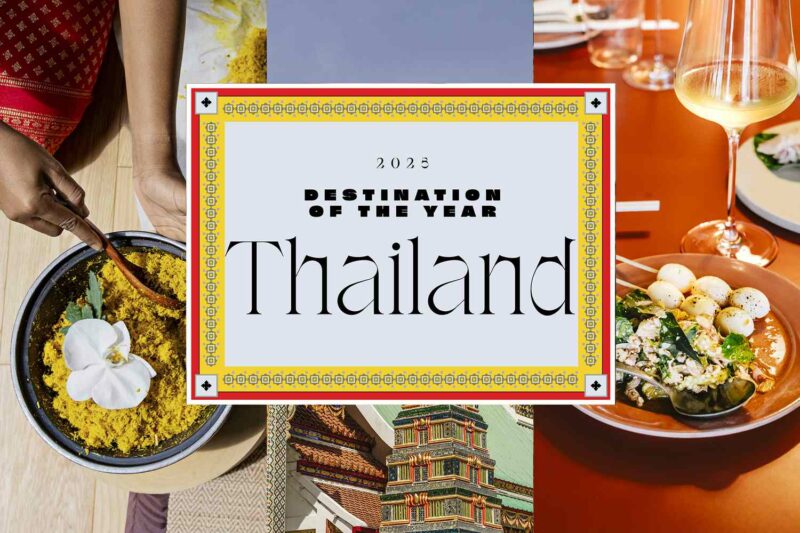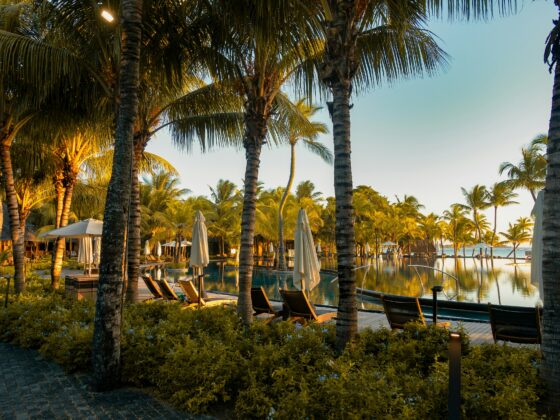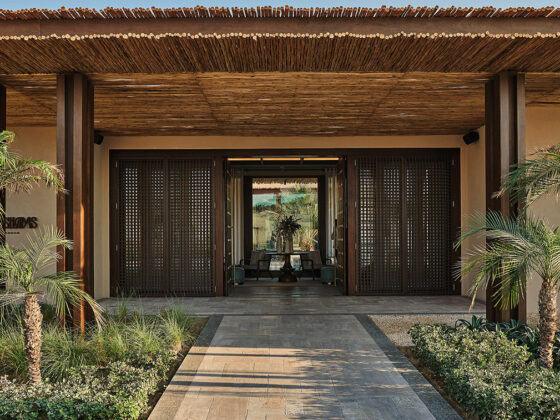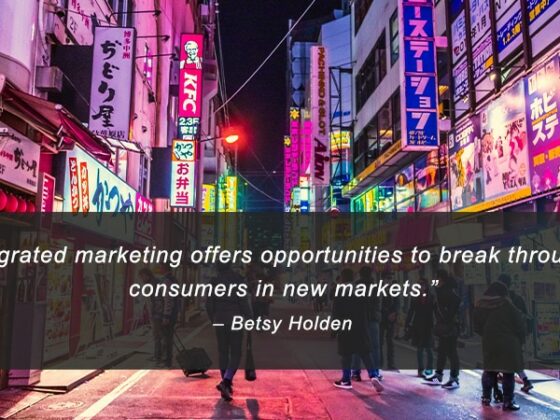Josiah:
Jacqui Nunley has more than 20 years of experience in hospitality technology, holding leadership positions across strategy, product, revenue, and distribution with companies such as Micros (now Oracle Hospitality) and Sabre Hospitality. She currently serves as a travel and hospitality advisor at Salesforce and in this episode, you’ll learn what she’s learned in her career so far and get inspired by looking at the opportunities we have in hospitality today.
Jacqui, it’s so good to see you. I appreciate you making time to speak with us today. You and I had a chance to work together in the past and I’ve really appreciated your perspective on hospitality, on travel, just how you think about things in general. So thank you so much for taking some time to speak with us today.
Jacqui:
Thank you so much for having me, Josiah. I’m very excited. This is a rare opportunity for me to be able to just gaffe about hospitality and technology, so I’m really glad that it’s with you.
Josiah:
I think it’s going to be a lot of fun. If we could. I’d like to start with talking a little bit about your career journey. The past couple of months I’ve been doing a lot of work around how people can think about their career journeys in hospitality. You’ve had a very rich and diverse career journey across many different roles, and I wonder if we could spend a little bit of time talking about that journey and then talk a little bit about your current role. But let’s rewind the clock and if we could tell me a little bit about how you got into hospitality. What started it all?
Jacqui:
Oh my gosh. Well, what got me into hospitality was my love for travel. So after I was done with school, but even during my growing up, typically my family used to travel a lot. It didn’t seem like a lot, or my perspective wouldn’t have called it a lot then, but it definitely was something that was very apparent about our families to travel. So when I was done with school, a friend of mine asked me hey, do you want to go and live somewhere else? And that’s really how it began. But I’m originally from Kenya and with travel comes the complexity of where you can go, how fast you can get a visa, what are the requirements, etc. And going through that, my love for travel versus the complexity of being able to travel is really what got me interested in first of all, tech. So that was the advent of into, kind of moving into. Well, if you put tech and hospitality where we stay and what we do to get there together, what does that bring together? So I actually decided to make a career out of my passion. And then, of course, what are the tools that are going to allow me to be able to do this much more efficiently navigate complexity, but also start to develop ways to help other people navigate that space. And that’s really the genesis of Jackie becoming somebody who was really dedicated to the hospitality industry and someone who is always will be dedicated to travel.
Josiah:
I love that, and so technology for you. What was that path, as you mentioned, toward navigating complexity, helping others, creating opportunity, both within these businesses, within the industry, but for you as well? And I wonder, if we walk through some of the roles that you’ve had and then we’ll talk about your current role, what was your first role in hospitality technology?
Jacqui:
So my first role in hospitality was actually in retail, but it was a retail company that served the hospitality industry and it was aligned with a company that, if you know about global travel, you’ve heard about Abercrombie and Kent and they were aligned and also outfitted a lot of the hotels in East Africa. So this is really where I got into okay, moving into hospitality from a retail perspective but really falling in love with hospitality as I traveled and got to go to all of these incredible lodges and hotels around East Africa as somebody who would be doing the checks and balances of everything that had to be there from a retail perspective for guests.
Josiah:
That’s fascinating and what surprised you in that role. So you did a lot of travel. You’ve loved travel, but now that you’re on the other side of the business helping people provide this hospitality, was there anything that stood out to you, as this is unusual?
Jacqui:
This is interesting. There was a lot of things that was interesting At the advent of my career actually taking off. One of the things that I did really notice is that different regions have different requirements, and this was sort of baked into my understanding of hospitality, or how hospitality actually has to be delivered to guests, based on the not just the environment, the location, the destination, but basically all of the aspects of hospitality coming together and then creating this seamless way of being able to deliver it. And how did technology fit into that versus how did you know high touch fit into that and how are we going to make these pieces come together? So I think that when it really started to make sense to me was the advent of online distribution.
Josiah:
I want to hear about online distribution, but I wonder if, before we get there, it would just speak a little bit more to the complexity. You mentioned this being a factor that attracted you to technology. Sometimes people who enjoy travel don’t appreciate the complexity or all the moving pieces, all the teams, all the stakeholders that are involved in providing that travel experience. And was that a bit of an eye-opening experience for you, as it was for me, when you started to see how many stakeholders and processes were involved in providing a good travel experience?
Jacqui:
Absolutely, and we talk about this, you know, not as often as we should talk about this, because travel does not start the minute you get to your destination. Travel starts at the inspiration stage. That’s where it becomes a task, and a task is something that you have to get done. So it’s really taking all of the components of traveling and staying at a destination and a choice of a hotel or a resort or an Airbnb, whatever it may be. All of these components actually fit into the complexity of defining what a good experience is in travel. So in my experience, it was a little bit difficult to get around back then. It’s not just about hopping from one destination to another. It could be, but when we’re looking at areas where you’ve got destination travel, specifically safaris, there’s a lot of complexity in putting that together. An incredible experience is making sure that your travel is booked efficiently, making sure that you have all your documentation in order. I’m not just talking about myself traveling, but imagining those traveling to where it is that I was. What documentation did they have to put together? in order to travel? Was that without incident? Did they have everything they need? Could they do it independently? Those are all questions that start to question whether or not you’re taking all of the components into place. Then there’s the actual travel. That doesn’t start with the hotel. It starts with your mode of transportation. So how is that experience? How do you take that and then move into maybe a different mode of transportation to get you to your destination? So what are people really experiencing when they get to the front desk? We talk about helping our staff make sure that the guest feels welcome, but have all of those components been taken into consideration? Does that front desk information to actually know the story of what it is to understand about the guest who’s in front of you and what they might have gone through to get to you?
Josiah:
What you’re getting at. This holistic experience is so important. You had the opportunity to learn this at Abercrombie and Kent, one of the renowned luxury travel providers, but I think any hospitality provider would do well to appreciate the complexity of this because, to your point, your interaction with that guest should not just start at them being at the front desk. You should think much more holistically about this, and I think back to just the notion of complexity. It seems also this is where the beauty and the opportunity lie in hospitality and travel, because whether it’s a safari or adventure travel or any sort of destination travel, these really stand out as consumers, as guests, as being peak life moments, but I think their peak in large part due to the complexity, right, because there’s so many moving pieces. But I’m glad you’re talking about this because I don’t hear enough people talking about that holistic perspective, that we should have.
Jacqui:
Yeah, it’s important to take all of these components into consideration and sure, technology can definitely augment a lot of this to make it easier for the traveler to be able to go through the processes when they are not in front of you. But the consideration of what it’s taken to get to you is a really important aspect of being able to deliver the right kind of service when you first encounter that particular guest. And then we can go into operationalizing all of the components that allow you to be able to augment that experience and really delight that customer. So that particular portion of their travel at least is memorable and it’s amazing and it’s everything that they had hoped for. It makes the journey before getting to you worthwhile that they will actually take into consideration when they have the opportunity to do it again. So these are aspects of we talk about pre-travel, we talk about post-travel, but are we really considering all of those pieces that it takes to actually get to our hoteliers? And I think it’s something that’s not talked about enough.
Josiah:
I would like to go through the components of that, but I do want to go back to your career journey. How did you make the leap to technology?
Jacqui:
So it’s kind of funny. I actually started in hardware. I worked for 3Com Again, we’re going to date me if you can think back to the modems that sat on your desk. I was about that time but I was fascinated about the advent of the internet and getting online and tinkering and that sort of thing. So at the time the conversation was very much about hardware and from working with 3Com in a marketing role that was bringing awareness of all of these things happening. That’s when I moved here and started working with Cisco Systems and that was great exposure to technology. At the time Cisco and still are, they’re still very relevant. It was just really good exposure. I worked with a great team. I learned a lot, but there was something missing and how I stumbled into software was also very interesting. I moved to the west coast of Florida where there were hardly any software companies, and I started doing my research and found this small development firm called Microsystems and as I got to know what they were doing, I was like oh my gosh, this is right down my alley and I was really, really interested. They weren’t typically hiring. They weren’t hiring at the time. They were busy developing and I happened to use my ways to get a meeting and walked in and handed in my resume and gave my whole spiel, and the response that I got back from one of the people there, who is still my mentor today, was Jackie Nunley. I don’t know what I’m going to do with you, but I am going to hire you, and that was the beginning of my entire software career in hospitality.
Josiah:
What a great story, and Micros, of course, ended up at not so small company, and so I made it. Shows the power of joining a team of builders and people making things that solve real problems.
Jacqui:
I am grateful for the exposure that I got there, the people that I met and interacted with, the opportunities to actually grow and in 20 years I’m still friends with a lot of these folks who are in the industry doing different things. But it was an experience that really shaped my interest in this industry and maybe like fortified the path to innovation and where is that we can go?
Josiah:
Yeah, well, it’s awesome to. I always love hearing how people got started in their business, how they grew their careers, and I think those experiences early on then afforded you the ability to work across many other aspects of hospitality and travel technology across the ecosystem on many different levels. I would love to hear about your time at Saber, which, of course, is one of the largest travel technology companies. How did that role come to be?
Jacqui:
So, again on the same track of really falling in love with everything online, online distribution just became a personal passion of mine. At the time. Everybody was standing up websites and that sort of thing and I was doing a lot of that too. The online distribution was really my first love and it really evolved into being able to look at the back end of things and connect everything. So it’s my interest in patterns and how things connect, or joining the dots to make things make sense. It really stemmed from that particular interest into finding a suitable role that allowed me to be able to develop that skill and it was extremely fulfilling. I worked on the booking platforms so that was the redesign of the booking engine and using the capabilities of the CRS, so it allowed me to be able to work with designer teams. It allowed me to work with development teams. It allowed me to work with customers who really wanted to innovate their presence online. So it kind of like hit every single area of interest of mine and I fell into it. But I really fell in love with it. It’s really how these hotels take their message to their customers in a very intimate setting. When you’re online and you’re browsing the internet, it’s you and them. So really connecting with customers on that level is paramount for brands to be able to move into that motion where you’re building a relationship with your customer and then it became your building a direct relationship with your customer. So this was the error where everything was available you can book on an ota, you call the travel agent, you could call a travel advisor, which had come into the market as well, but really creating that one on one relationship with the brand, one of the most important areas was the transaction. So I’m glad that I was able to be a part of that and hopefully solved a lot of problems out there and made it easier for people to interact ethically and derive some delight from it. So you know, in my two decades of experience, you know, working within the industry, it’s not just the role that I’m in now, it was product development and management and different areas that all put this together and I’ve always kind of sought out Organizations that reflect, you know, my personal values, my values of authenticity, of curiosity, of determination.
Josiah:
I wanna see more people thrive and come alive in their careers in hospitality and I wanna congratulate you on recently passing five years at sales force a phenomenal organization and I’m curious just to get here your story of why did you decide to work at sales force and what are some of the other factors that attracted you to the role that you’re in today.
Jacqui:
Oh gosh. Well, thank you first of all. But yeah, I’ve been in this business about two decades and that Kind of spans around working within the industry in various roles in product development, in product management and then in different management areas as well. But I’ve always sought out organizations that reflect my personal values of you know, if we began with authenticity, determination, curiosity especially and there’s plenty others that I do have. But I’ve always sought out organizations where I believe strongly In the power of trust, of learning and of responsible leadership, and that, I believe, is what drives meaningful growth and innovation. And this is one of the reasons that I really chose to work here at sales force, because sales force actually shares those values and it specifically emphasizes trust. It emphasizes innovation, customer success, equality and sustainability, which we added to our Values recently. So the past five years for me have been a really fulfilling journey of continued learning and growth. I started, you know, here as a member of the go to market team and that evolved into an industry advisory role. But it’s allowed me to witness and contribute to this fascinating intersection of technology in hospitality and using my background or leveraging my expertise to really inspire the industry and kind of foster that sense of love and aspiration and I think that’s the reason you know for this dynamic space of hospitality and whether that’s amongst you know the prospects that I talk to or the current customers that I talk to, or individuals that I work with or those that I encounter in the industry. And this culmination of an absolute sense of contribution that aligns with those values and sales force is commitment to innovation, and truly their commitment to innovation and customer success really aligns also with, you know, my pursuit for knowledge. Look at where we are in this day and age and how far we’ve come in a very short time at the advent of the change of technology and how we’re going to do things in the future. My own pursuit of knowledge and meaningful work also are baked into that. It’s the focus on equality and sustainability that mirrors my own values of fairness, of responsibility and optimism. So, as I approach this next phase, after being here for five years, you know I can confidently say that this alignment has been very, very crucial to my satisfaction, but also my success in my role here at sales force and my continued interest in being aligned with a company that really gets it.
Josiah:
Yeah, it’s great to hear that, and I want all of the people listening to this to think about this on a personal level, right? Am I in a role that aligns with my values, where I have an opportunity to learn? As you mentioned, this is such a key part to satisfaction, and we all spend way too much time at work for this to be ignored. You can’t just overlook this. A big chunk of our lives is going to be working, so you might as well be working on something that matters to you, but also the environment you’re in. And then I think, for all the people who are hiring people and have teams to think about this as well how do you provide this for the people that are on your teams? And so it’s great advice, jackie and I have been a happy sales force customer for years, and for me, when I think about sales force, what initially pops into my head is the CRM right, the technology that you have to organize guest or customer profiles, but the suite of sales force technologies is much bigger than that right. So, for people who may have a more narrow view of what sales force does, what are the areas that you’re involved in when it comes to technology in the hospitality and travel space.
Jacqui:
So maybe I’ll say I’ll answer your question a little bit from a different angle or a different perspective. So you and I have been in hospitality for a really long time. We know the multitude of systems and solutions that exist. We are point system central. Everyone’s got a product. Those product spaces are very, very crowded and you know. It’s not to say that these solutions are hindering hospitality from growing. No, as a matter of fact, these point solutions actually do their jobs really well, really well. So we started off as a CRM company and at the core of travel and hospitality is what the customer Right, the guest, the traveler. So it aligns very well. But when it comes to addressing what we need in travel and hospitality, there was a gap that we did identify, and that is the engagement layer. Not only is the engagement layer the area where technology is moving at its fastest pace, not on the business side necessarily. That actually had time to adapt until, you know, a few months ago but on the consumer side. Think about how much technology you have in your office, home office, around you, what you use day to day, how you inform yourself, how your expectations have changed with regards to what service actually means to you. And when we looked in that area there wasn’t a lot helping companies or brands get closer to their customers. That particular gap was growing, and very rapidly so. And that’s really where Salesforce comes in. And Salesforce products and solutions come in not to knock out what has worked really well, but to augment it so that brands and customers can get closer. And that’s the heart of CRM technology. You know, it’s really that 360 degree view of your guest, of continual learning about what guests needs and expectations evolve into and being able to address that not just from a high at the front desk. It’s from a marketing perspective how are you communicating with your guests? It’s from a service perspective when does service start and when does it end? A couple of years ago we predicted that services going to become a component of everything, and here we are today where it actually is. But that’s not to say that, with all of this innovation that’s come in, there’s also the component of operations We’ve been talking about, you know, using automation for operational efficiency for a really long time. And now we’re in the age of AI and to be able to provide not only the visibility but the speed at which things are moving require the visibility and analytics and understanding and intelligence of how you interpret that information in order to achieve operational efficiency. So if you were to take those core components and you’ve got the CRM, which is the heart of all of the information on how your guests or your travelers are interacting with you and how they are evolving, so that you can understand their needs and preferences Marketing is really the arm of how you communicate and keep them engaged. So this is the component that is just about everything and will continue to be everything. And then you have to have that intelligent arm, which is, you know, tableau, analytics and dashboards, to be able to increase the visibility of information for people to take action, but also increase the visibility of how your business is doing. Now, underneath that layer, there is a whole other component that we know that will really help customers out there, especially in our space, and it’s really about where does all your data live? Now, we’ve talked about disparate systems in our industry for the longest time and we’ve talked about data living in different places, and you know one of the most painful portions of this, of course, is integration. Not only is it costly, but it’s also extremely complex, you know, to have these legacy systems talk to each other, so this is another area that has spun up the conversation around where does the data live and is the data secure? But the most important question is what can you do with your data? That is what is going to separate the winners and the losers, and I hate to put it that way. Let’s talk about being relevant in the future versus, you know, dying off, which is not a good thing for any of the hospitality or travel businesses out there. So we’re really moving into an era, especially with the advent of AI. It’s really how are you actually your data and what components do you have to be able to action that effectively? And what system is your data actually sitting in? Is it secure?
Josiah:
You mentioned a little bit about your role today, but I wonder if you could tell me just a little bit more about this, and then maybe we can talk a bit about what you’re excited about working on today.
Jacqui:
Well, my role as an industry advisor here at Salesforce is kind of spread across an industry focus. It is also a very fulfilling support role for our sellers. And then it’s also extremely fulfilling because you’re bringing the inside out and you’re taking the outside in as well. So it really is about balancing what it is that the industry is going through bringing in that knowledge to make our sellers smarter around hospitality, to allow our sellers to really align with what our customers are looking for, and then supporting that with whether it’s documentation, pieces of enablement, spending time with our sales teams, really getting them smart on how it is that the industry is moving, how it is that the industry wants us to be able to align to them, and it’s really a balancing act between all of those three. So you’ve got learning, you’ve got knowledge, you’ve got support and talking to our customers as well about innovation and what’s coming, and how do you take this innovation and augment it to our industry in the best possible way that not just leads to profitability but also leads to aligning your brand with the new travelers who are going to come up at some point. I think you know, if you look at the past few years, we focused on millennials and Gen Z coming into our travel market. But you know what about beyond that? How are you going to stay relevant in the industry? How are you going to be able to address the challenges that we see today and when we look at our predictions in the industry, where is that we’re going? This is a really important area where our customers want to be smarter, want to be able to serve the industry in the most ethical way and also need to prepare for the future, not just for their businesses, but for all the new travelers that are coming.
Josiah:
You have to look down the road. You need to see what might be coming. I do want to spend a moment talking about this notion that you said of being a hub of information, where you’re listening to hospitality providers, industry participants and relaying that to people on your teams that are building the technology and vice versa. And, specifically, what have you found useful in listening well and communicating, because it feels like innovation is really comes down to that. Right, it’s observing and listening well, and it seems really hard to do that at scale In a scale of an organization like Salesforce. How do you think about doing that across so many people that you engage with?
Jacqui:
Oh, it’s amazing how many different resources that we have here to be able to scale information. So, you know, on looking from the outside, in there’s podcasts like yours, and we get to hear a lot about industry leaders and what they’re thinking about, of course, but when you’re looking at an organization like Salesforce, we have our own product solutions that we’re taking to our customers active, as you know, solutions that we actually use ourselves. So, thinking about Salesforce and how large it is, if we just boil it down to an incredible innovation or an incredible change in our industry or an incredible win in our industry, how do I get all of that information out to you know, all of our travel and hospitality resources globally in a way that they can consume that and, you know, be at the tip of understanding what’s going on with their customers and the industry?
Josiah:
This was just the first part of my conversation with Jackie. Subscribe to Hospitality daily in your podcast app so you don’t miss our episode tomorrow where we do a deep dive on technology and its implication for the way that you provide hospitality today.





